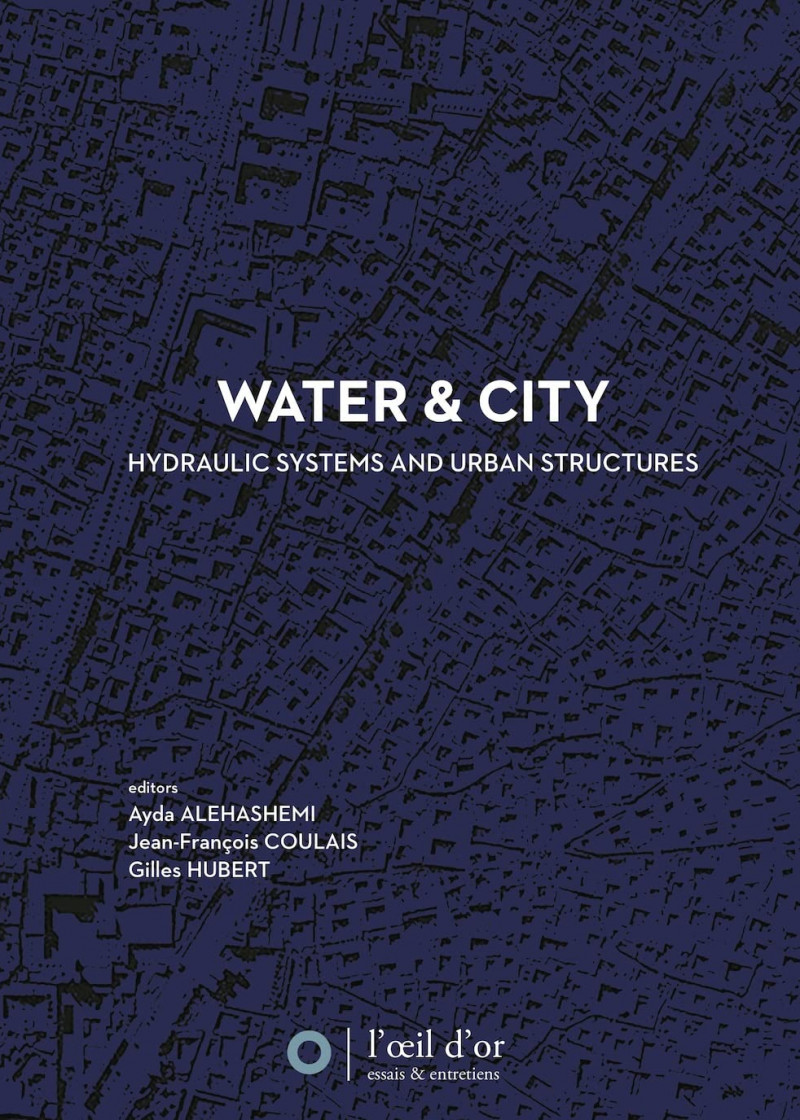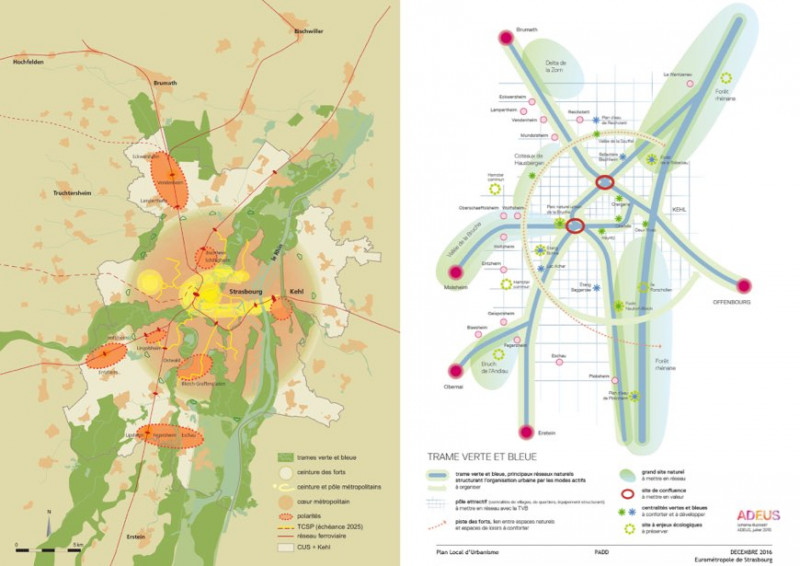Recomposing Urban and Regional Territories through Water Management
Identified as a central issue and a challenge for reaching sustainability and resilience in urban and territorial development, water management cannot be operated without a deep and situated understanding of both city-water and society-water relationships as seen from a structural, physical and mental level.
For Strasbourg and the Upper Rhine Region, water has always been a fundamental element for urban and territorial development. This article illustrates a critical understanding of the historically and culturally-based processes that shaped and transformed this territory over time through water management and different urban rationalizations. Each historical phase, conditioned by different ideologies, social needs and desires, revisits and relates differently to the geographical, topographical and hydrographical features of the territorial support, producing different landscapes and spatial organizations.
The text then focuses on the current period still under construction, pointing out the conflicting lines and spaces of negotiation for reinventing Strasbourg’s relationship to water, while articulating the cross-border metropolitan ambition, a reconsidered value of the “blue thread” through new urban development, public uses and ecological concerns, the water uses and structures inherited from the previous periods, and the risks related to recent drought events that are likely to become more frequent.
The article finally presents briefly our active contribution in this sense as researchers and urban designers. Reaching for a renewed complex, multi-scalar and multi-actor approach, we defend a conceptual framework relying on design as a negotiation platform where water, as a structuring network, a territorial matrix and a fluctuating resource, could re-engage all design scales: watershed, metropolis, city, district, public spaces, buildings.





